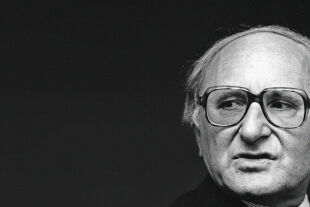
His belief was that theology must be relevant in the public space. Inevitably, there were conflicts at different levels, because he never did theology from the denigrated ivory tower, simply remaining within the theological or ecclesial sphere. Metz was never short of good formulations: he intervened in debates, he was convincing. An interesting experiment is to take volume 8 (“Conversations, Interviews, Responses”) and let the German theologian comment and interpret himself, which he often did in interviews in a very concise, almost shorthand way this can foster a first approach to his books and articles. This makes it possible to trace his long academic journey. Viennese theologian Johann Reikerstorfer, in the period between 20, edited and published a collection of Metz’s writings, a nine-volume edition, aimed at preserving his work over time.


His name is associated with powerful key expressions such as “the new political theology,” “theology after Auschwitz,” “compassion,” “open-eyed mysticism,” and memoria passionis.Īfter his death on December 2, 2019, The New York Times published an obituary that described the German theologian as a “pioneer of Jewish-Christian dialogue in the aftermath of the Holocaust.” During his life, judgments and evaluations of him were diametrically opposed: “Some consider him the ‘shooting star’ of a critical and cosmopolitan theology others see in him a Marxist agitator, an enemy of the Church.” Metz is not only a French city on the Moselle River, but also the name of a German theologian who gained worldwide fame: Johann Baptist Metz.


 0 kommentar(er)
0 kommentar(er)
